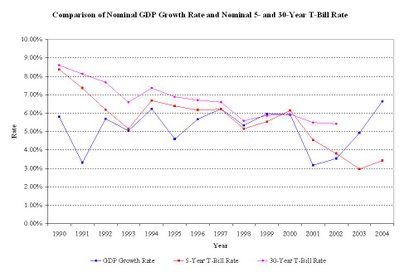Internships
The Bureau of Labor Statistics does not identify interns or track the economic impact of unpaid internships. But we can do a quick-and-dirty calculation: according to Princeton Review's "Internship Bible," there were 100,000 internship positions in 2005. Let's assume that out of those, 50,000 unpaid interns are employed full time for 12 weeks each summer at an average minimum wage of $5.15 an hour. That's a nearly $124 million yearly contribution to the welfare of corporate America.
In this way, unpaid interns are like illegal immigrants. They create an oversupply of people willing to work for low wages, or in the case of interns, literally nothing. Moreover, a recent survey by Britain's National Union of Journalists found that an influx of unpaid graduates kept wages down and patched up the gaps left by job cuts.
I'm not sure that unpaid interns are really like illegal immigrants, for a number of reasons. But the willingness of students to take (sometimes skilled and sometimes non-skilled) work for little or no pay is bound to have effects on the labor market.
Another interesting point:
In an information economy, productivity is based on the best people finding the jobs best suited for their talents, and interns interfere with this cultural capitalism. They fly in the face of meritocracy — you must be rich enough to work without pay to get your foot in the door. And they enhance the power of social connections over ability to match people with desirable careers. A 2004 study of business graduates at a large mid-Atlantic university found that the completion of an internship helped people find jobs faster but didn't increase their confidence that those jobs were a good fit.
There are lots of possible problems here, especially since we are now finding out that initial market conditions/initial jobs can have a big impact on your long-term financial health. And there are distributional issues here. Samwick kind of brushes the inequality issue aside:
No one would deny the simple fact that students who come from well off families have more opportunities than those who come from less well off families. That point is irrelevant here, as long as we make sure that the internship is not relatively more expensive for the students from less well off families.
He does point out that at Dartmouth, stipends are available for students who take unpaid internships. I doubt, however, that they come close to fully correcting for the financial issues involved in the choice between an unpaid internship and, say, waiting tables for the summer. And, again speculation, I think Dartmouth is likely the exception, rather than the rule. If unpaid internships are largely creating more advantages for the advantaged, that's a real problem. It seems like a real issue to me.
The inequality issue is highlighted in a NY Times piece from 2004 (pdf), which I tracked down while trying to get a quick sense of how widespread stipend programs like Dartmouth's are. It seems that they are not as widespread as Samwick imagines. (On the bright side, my favorite university appears to have one in place.)




